M. Rasoul Narimani
Infinite Impulse Response Graph Neural Networks for Cyberattack Localization in Smart Grids
Jun 25, 2022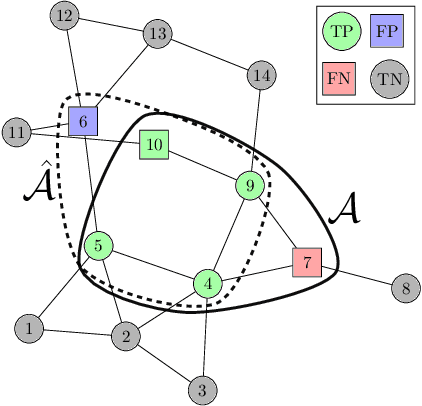

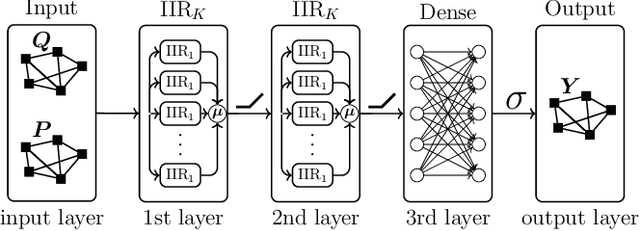
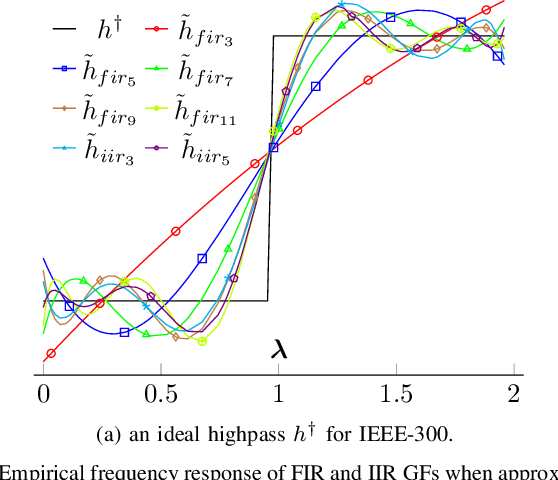
Abstract:This study employs Infinite Impulse Response (IIR) Graph Neural Networks (GNN) to efficiently model the inherent graph network structure of the smart grid data to address the cyberattack localization problem. First, we numerically analyze the empirical frequency response of the Finite Impulse Response (FIR) and IIR graph filters (GFs) to approximate an ideal spectral response. We show that, for the same filter order, IIR GFs provide a better approximation to the desired spectral response and they also present the same level of approximation to a lower order GF due to their rational type filter response. Second, we propose an IIR GNN model to efficiently predict the presence of cyberattacks at the bus level. Finally, we evaluate the model under various cyberattacks at both sample-wise (SW) and bus-wise (BW) level, and compare the results with the existing architectures. It is experimentally verified that the proposed model outperforms the state-of-the-art FIR GNN model by 9.2% and 14% in terms of SW and BW localization, respectively.
Spatio-Temporal Failure Propagation in Cyber-Physical Power Systems
Feb 05, 2022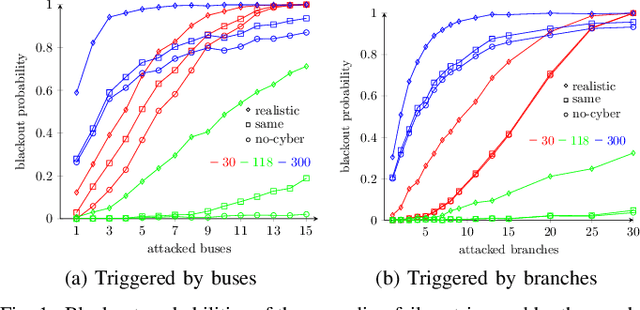
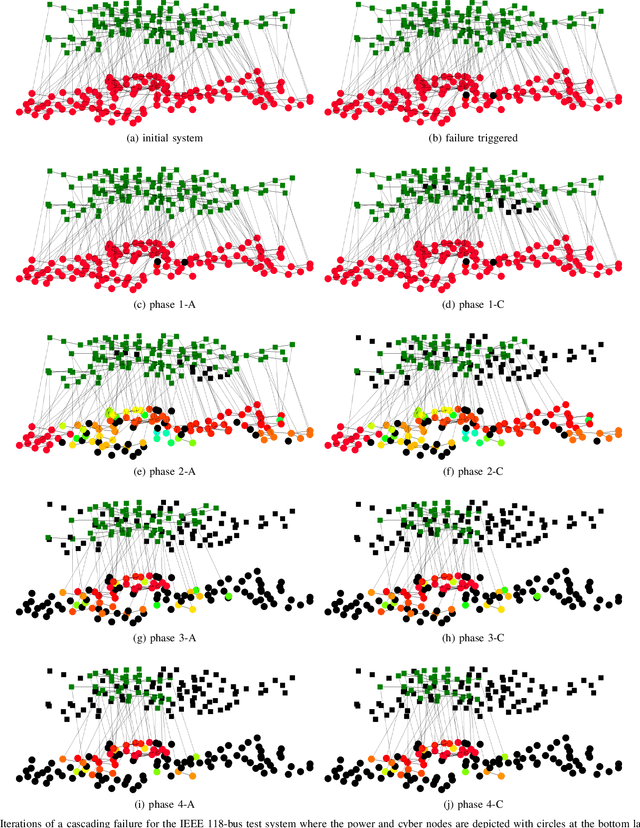
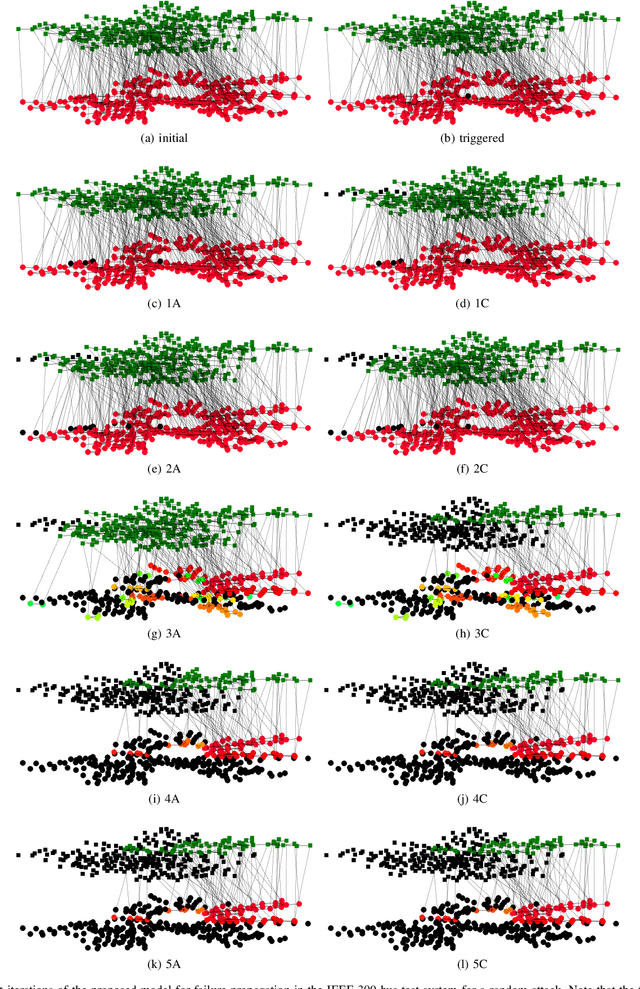
Abstract:Cascading failure in power systems is triggered by a small perturbation that leads to a sequence of failures spread through the system. The interconnection between different components in a power system causes failures to easily propagate across the system. The situation gets worse by considering the interconnection between cyber and physical layers in power systems. A plethora of work has studied the cascading failure in power systems to calculate its impact on the system. Understanding how failures propagate into the system in time and space can help the system operator to take preventive actions and upgrade the system accordingly. Due to the nonlinearity of the power flow equation as well as the engineering constraints in the power system, it is essential to understand the spatio-temporal failure propagation in cyber-physical power systems (CPPS). This paper proposes an asynchronous algorithm for investigating failure propagation in CPPS. The physics of the power system is addressed by the full AC power flow equations. Various practical constraints including load shedding, load-generation balance, and island operation are considered to address practical constraints in power system operation. The propagation of various random initial attacks of different sizes is analyzed and visualized to elaborate on the applicability of the proposed approach. Our findings shed light on the cascading failure evolution in CPPS.
 Add to Chrome
Add to Chrome Add to Firefox
Add to Firefox Add to Edge
Add to Edge